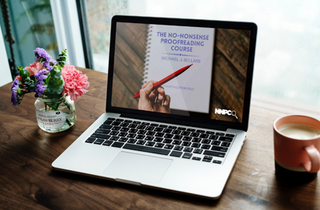|
Let’s not beat about the bush. The answer is ‘no’.
There is absolutely no such thing as an ‘officially recognised’ proofreading qualification. There is no magic certificate from any course provider that occupies the top spot on some ‘must-have’ list when organisations are looking to take on proof readers. Anyone telling you that their qualification is ‘universally recognised’, is being more than a little disingenuous. That isn’t to say, however, that certificates aren’t without value. I wouldn’t be too surprised if the possession of one of these little pieces of paper came into play as some kind of deal-breaker when considering equally gifted applicants. So, I’m disinclined to dismiss them entirely. In my 20 years of experience as a proof reader, however, I never once encountered anyone boasting such a qualification. Nor, as an Operations Manager responsible for hiring proof readers, did possession of a proofreading accreditation form part of any recruitment criteria I was aware of. Most organisations looking to employ the talents of a proof reader are going to be far more interested in your experience. Thankfully, The No-Nonsense Proofreading Course tells you precisely how to go about seizing opportunities to gain experience. It also tells you how to turn that experience into a formidable reputation by collecting as many testimonials as possible. What’s more, you can go about amassing all this experience and all these testimonials at zero cost to yourself. You simply need to invest a little time. Compare that to the cost of acquiring a qualification. I’ve seen courses advertised for as much as £200. Makes my little £7.99 eBook seem positively cute. In addition to looking at your experience (and demonstrating little or no interest in supposed qualifications), very many organisations will expect you to undertake some form of proofreading test, something that’s likely to tell them whether or not you’re their kind of proof reader. Remember, not all proof readers are born equal, and not all proofreading projects are the same, either. I’ve proofread novels and I’ve proofread legal contracts and they are, to say the very least, worlds apart. So, would I pay good money for a proofreading qualification? No, I wouldn’t. Should you? Well, as I said, they’re not entirely without value. But, I’m afraid I’m going to have to shirk my responsibilities and leave that one up to you. However you decide to proceed, I wish you the very best of luck.
0 Comments
In my experience, proof readers tend to be rather calm individuals, going about their work in an unruffled, dignified manner. Proof readers are rarely confrontational in temperament, because proofreading by its very nature requires a serene and reflective approach. So, it was rare for me, as an Operations Manager supervising, amongst other people, proof readers, to have to intervene in any kind of serious dispute.
Except when it came to hyphens. To a proof reader, hyphens are like a red rag to a bull. There appear to be two distinct camps. On the one hand you’ve got your proof readers who can’t get enough of hyphens, proof readers who would happily mark-up an otherwise clean proof with an overabundance of little red dashes. And, on the other hand, you’ve got your anti-hyphen proof readers (or should that be ‘antihyphen’ or ‘anti hyphen’?). These guys would gladly see the hyphen put it into storage, to be taken out and dusted off on those rare occasions where context alone is insufficient to infer meaning. My personal leanings are toward the second camp. There was nothing more infuriating than seeing a proof limp toward the finish line simply because of a few hyphens (particularly when it’s holding up an entire forme and the head of the print department is having a monumental hissy fit). Given my personal feelings on this matter, it’s probably best if I hand over to an independent authority: the Plain English Campaign. The following is from their excellent website: The main use of a hyphen is to join two or more words together. Sometimes a word needs a hyphen for it to be spelt correctly. For example: • one-off • part-time • face-to-face In some situations there are no hard and fast rules and the use of hyphens is a matter of personal preference. However, there are some guidelines on when you should use them. In compound adjectives (single adjectives formed from two or more words) that appear before a noun For example: • An up-to-date guide is a guide that is up to date. • Income-based Jobseeker’s Allowance is a benefit that is based on your income. • An energy-efficient fridge is one that is energy efficient. These hyphens are often necessary to avoid confusion. For example: • A blue-collared shirt is a shirt with a blue collar, while a blue collared shirt could be a blue shirt that has a collar. • A French-dictionary salesman is a man who sells French dictionaries, while a French dictionary salesman could be a Frenchman who sells dictionaries. • A red-wine bottle is a bottle for red wine, while a red wine bottle could be a wine bottle that is red. To distinguish one word from a similar one For example: • re-sort, not resort • co-op, not coop • re-form, not reform With prefixes Some words formed with a prefix are always hyphenated. For example: • self-employed • pro-family • anti-aircraft With some prefixes, a hyphen is not necessary but is preferable to help with pronunciation, avoid a double vowel, or stop a word looking odd. For example: • co-ordinate • re-enter • de-ice When numbers between 21 and 99 are written out in full For example: • twenty-one • ninety-nine • one hundred and thirty-four (Note that only ‘thirty-four’ is hyphenated.) Remember, us proof readers are a relatively small group. We need to stick together. So, let’s not fight. Completely off-topic, this post. But, in the spirit of great customer care, I feel duty-bound to pass on any 'scam' information that comes my way.
If you receive an email with the following subject line: UPS Delivery Problem NR 20774102, delete it immediately and mark it as spam (if your email account has the facility). It contains a virus that can have a devastating effect upon your computer, the only fix for which is sold at 'just' $47 by the very people who sent you the rancid little email. It's a wonderful world if you don't weaken. The No-Nonsense Proofreading Course contains a list of examples of costly spelling errors for you to dip into whenever you find yourself confronted with the old, “I don’t need a proof reader, I’ve got spell-checking software” chestnut.
Prepare to add another to that list. And it’s a whopper. A single typo recently cost Penguin Group Australia $20,000. That’s right. $20,000: the cost of pulping and reprinting 7,000 copies of the bestselling Pasta Bible. And what spelling error or grammatical gaffe could be so awful as to warrant such an expensive solution? Surely it can’t be that bad? Brace yourself. A recipe for spelt tagliatelle with sardines and prosciutto instructed the amateur chef to add to the otherwise wholesome and inviting ingredients “salt and freshly ground black people”. Oh dear. And don’t forget to tell your but-we-have-spell-checking-software nemesis that $20,000 is just the tip of the iceberg. Hundreds of man-hours of frantic public relations activity will have been spent in an effort to undo the offense this particularly nasty little error will undoubtedly have caused. In true CSI fashion, let’s reconstruct this horrible, horrible crime. Imagine you’re typing the word ‘pepper’. You’re not concentrating. Perhaps your stomach is rumbling at the thought of the spelt tagliatelle with sardines and prosciutto you’re going to rustle up when you get home. You type the first ‘p’, then the ‘e’. So far, so good. Then disaster strikes. Instead of tapping the ‘p’ next, you hit the ‘o’ immediately adjacent to it. It’s easily done. You don’t even notice the error and continue to type the remaining ‘e’ and ‘r’. Now, instead of ‘pepper’, you’ve got ‘peoper’. You run your trusty spell-checking software through the copy and it highlights your error. You scroll through the list of possible replacements and, somehow (maybe you’re really starving by now) your curser alights not on ‘pepper’ as it should but on ‘people’. And you’ve sealed your doom. “How do you feel about your spell-checking software now, Mr Nemesis? Hmm? Hmm?” As a proof reader, it’s vitally important that you keep up with the latest neologisms. You don’t want to mark up a proof, confident that you’ve highlighted some real humdingers, only to discover the only thing you’ve successfully drawn attention to is your own inability to ‘get with the times’ (that’s how the kids put it, I believe).
Take a good look at your dictionary. If it looks like something that’s been rescued from a war zone (and smells like something from an Edgar Allen Poe story), it’s probably time to invest in a new one. New words are added to the English vocabulary every year. So, the older your dictionary, the more impoverished your vocabulary is likely to be. There are a number of great (and entirely free) online dictionaries to choose from. If, like me, however, you gain a certain amount of comfort from the physical artefact of a ‘real’ book (the rustle of paper, the smell of ink and page preserver), why not pop along to our Amazon store and browse away. The following neologisms are from the revised eleventh edition of the Concise Oxford English Dictionary. abdominoplasty n. Medicine a surgical operation involving the removal of excess flesh from the abdomen. aerobicized or aerobicised adj. (of a person's body) toned by aerobic exercise: aerobicized Hollywood women. agroterrorism n. terrorist acts intended to disrupt or damage a country's agriculture. – derivatives: agroterrorist n. bahookie n. Scottish a person's buttocks. – origin 1930s: prob. a blend of behind and hough + -ie. best – phrases: best of breed – any item or product considered to be the best of its kind. blowback n. 2. chiefly US the unintended adverse results of a political action or situation. celebutante n. a celebrity who is well known in fashionable society. – origin 1930s: blend of celebrity and debutante. crunk n. a type of hip-hop or rap music characterized by repeated shouted catchphrases and elements typical of electronic dance music, such as prominent bass. adj. US, chiefly black slang (of a person) very excited or full of energy. – origin 1990s: perh. an alt. past part. of crank1 or a blend of crazy and drunk. elephant – phrases: the elephant in the room a major problem or controversial issue which is obviously present but avoided as a subject for discussion because it is more comfortable to do so. emulsion n. 1. – a fine dispersion of one liquid or puréed food substance in another: ravioli with pea and ginger emulsion. hardscape n. chiefly US the man-made features used in landscape architecture, e.g. paths or walls, as contrasted with vegetation. – derivatives hardscaping n. hoody (also hoodie) n. – informal a person, especially a youth, wearing a hooded top. – origin 1960s: of unknown origin. mentee n. a person who is advised, trained, or counselled by a mentor. mesotherapy n. (in cosmetic surgery) a procedure in which multiple tiny injections of pharmaceuticals, vitamins, etc. are delivered into the mesodermal layer of tissue under the skin, to promote the loss of fat or cellulite. mzee n. (in East Africa) an older person; an elder. – origin Kiswahili, 'ancestor, parent, old person'. obesogenic adj. tending to cause obesity. plank n. 3. Brit. informal a stupid person. ponzu n. (in Japanese cookery) a sauce or dip made with soy sauce and citrus juice. – origin Japanese, from pon 'smack, pop' + zu, from su 'vinegar'. radge Scottish informal n. a wild, crazy, or violent person. adj. wild, crazy, or violent. – origin 1920s: appar. an alt. of rage. rendition n. 3. (also extraordinary rendition) (especially in the US) the practice of sending a foreign criminal or terrorist suspect covertly to be interrogated in a country with less rigorous regulations for the humane treatment of prisoners. retronym n. a new term created from an existing word in order to distinguish the original referent of the existing word from a later one that is the product of progress or technological development (e.g. acoustic guitar for guitar). – origin 1980s: blend of retro- and -onym. riffage n. informal guitar riffs, especially in rock music. shoulder-surfing n. the practice of spying on the user of a cash-dispensing machine or other electronic device in order to obtain their personal identification number, password, etc. – derivatives: shoulder-surfer n. SIPP n. (in the UK) a self-invested personal pension, a pension plan that enables the holder to choose and manage the investments made. therapize or therapise v. subject to psychological therapy: you don't need to therapize or fix each other. tri-band adj. (of a mobile phone) having three frequencies, enabling it to be used in different regions (typically Europe and the US). twonk n. Brit. informal a stupid or foolish person. – origin 1980s: perh. a blend of twit1 or twat and plonker. upskill v. [often as noun upskilling] teach (an employee) additional skills. • (of an employee) learn additional skills. wedge issue n. US a very divisive political issue, regarded as a basis for drawing voters away from an opposing party whose supporters have diverging opinions on it. Yogalates (also trademark Yogilates) n. a fitness routine that combines Pilates exercises with the postures and breathing techniques of yoga. – origin 1990s: blend of yoga and Pilates. zombie n. 3. a computer controlled by a hacker without the owner's knowledge, which is made to send large quantities of data to a website, making it inaccessible to other users. Those of you who have read the No-Nonsense Proofreading Course eBook will know that I go to great pains to emphasise the importance of developing a strong reputation and the part that testimonials play in this crucial process.
Well, I’ve just stumbled across a means of getting your hands on free proofreading exercises and a decent source of testimonials. Where? Yahoo Answers, that’s where. Sign up for Yahoo Answers. Key in the search phrases, ‘proofreading’, ‘proofreader’ or ‘proof reader’ and narrow your options down to ‘open questions’ only. You’ll be presented with a whole host of people looking to have documents proofread: essays, reports, dissertations, short stories, novels, that kind of thing. Now, these people aren’t looking to pay you for your services. Not in cash, anyway. However, you could ‘work for rep’. In other words, you say, “I’ll proofread your essay, so long as you provide me with a glowing testimonial (providing I earn it, of course).” It’s a great opportunity for the novice or trainee proof reader to practice their technique on genuine material and grab a few testimonials into the bargain. Put these testimonials on your website or feature them as part of your promotional activity. Instant credibility! If you haven’t read the eBook yet, you’ll find an abundance of this kind of advice. Click here to find out more. |
Details
Testimonials
“I am one of those many fools who paid a huge amount of money for a useless course. This book... has opened so many doors for me. I now look on Mike as my mentor as I embark on a career. Thank you Mike.” Emma Steel, Proofreader and International Structural Editor. “ I thoroughly enjoyed the course and am so glad that I decided to take it... the whole experience was invaluable. My proofreading service is now well established and your course played no small part in getting it off the ground.” Hache L. Jones, Proofreader. “I'd just like to thank you first of all for writing such a great, straight forward eBook, and then going above and beyond what I would even expect as a customer by providing us, completely free of charge, updated versions months later!” Rachel Gee, Trainee Proofreader. “What can I say? Worth every penny and then some! God Bless! This a fabulous course.” Teresa Richardson, Proofreader. “As someone who has effectively been proofreading for thirty years, I found Mike’s No-Nonsense Proofreading Course an invaluable introduction and a very useful practical guide to many aspects of this discipline. I can wholeheartedly recommend it as the ideal starting point, and much more besides.” Jeremy Meehan, Proofreader. Blog AuthorMy name's Mike Sellars and I'm an experienced proofreader and the author of The No-Nonsense Proofreading Course. Click here to find out more about me. The No-Nonsense Proofreading CourseA Fraction of the Cost of Other Proofreading Courses NOTE: Stock is currently limited to 10 per day, so we can continue to deliver exceptional after-sales service, answer queries and provide open-door support. Credit card and PayPal payments accepted. “As someone who has been proofreading for 30 years, I found Mike’s course an invaluable introduction and a very useful practical guide to many aspects of the discipline. I can wholeheartedly recommend it.” Jeremy Meehan, Proofreader. Still want to find out more? Click here. Proofreading Categories
All
Proofreading Archives
July 2024
|

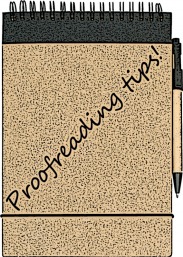
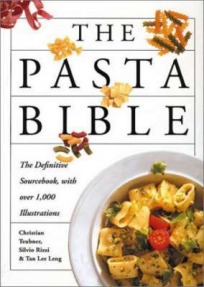

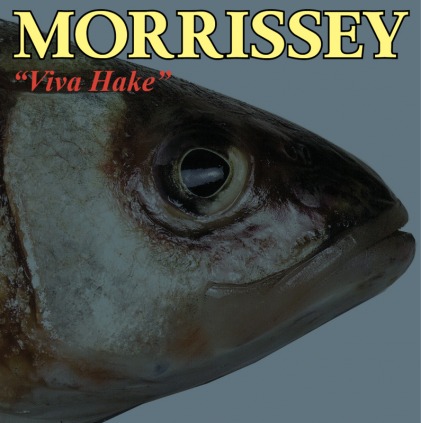
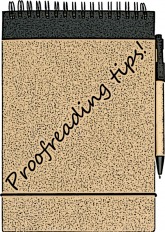
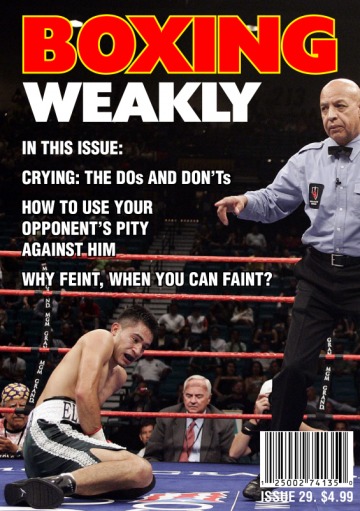

 RSS Feed
RSS Feed
